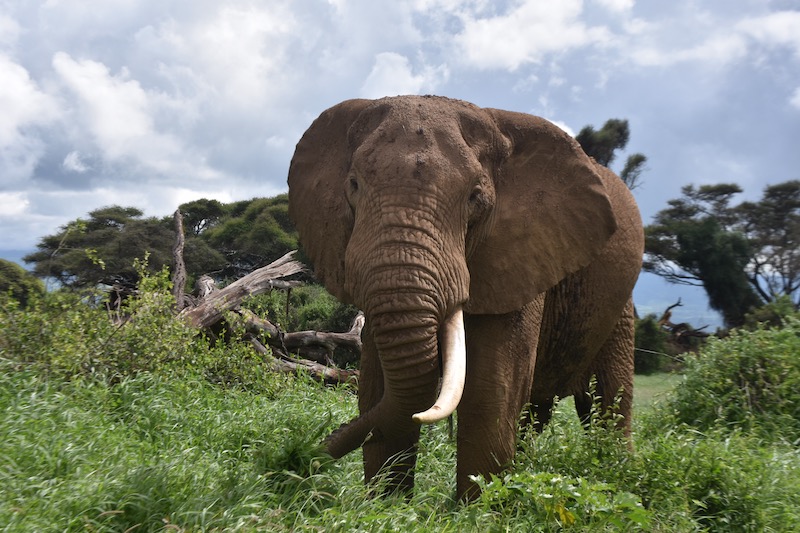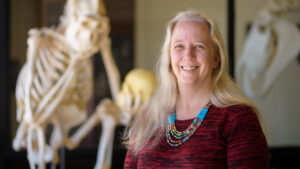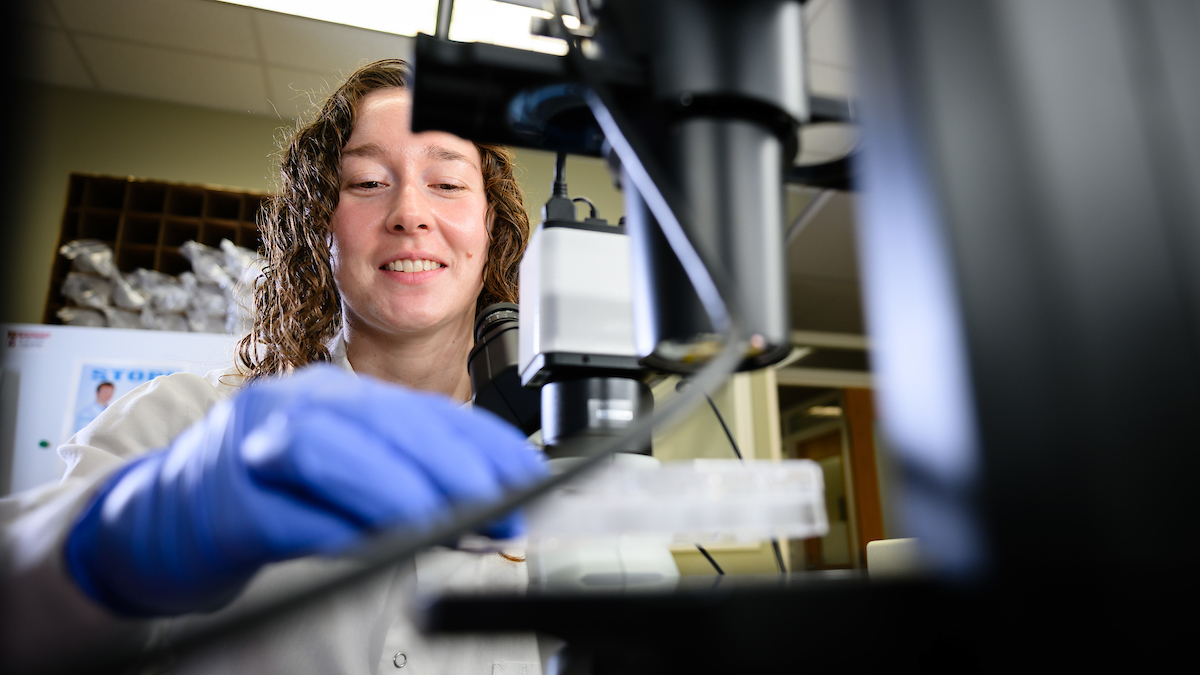NC State CVM-Led Cancer Database Changes the Game for Exotic Pets and Wildlife

The lion had lymphoma, and Tara Harrison was told there was nothing that could be done.
Harrison thought differently.
“I said, ‘OK, great. Let’s treat him.’ Then I found out no one had ever done that,” says Harrison. “They said, ‘He’s old. He’s lived his life. Just euthanize him.’ I thought, but why? Why?”
That was Harrison’s first major case working at a zoo. Fifteen years later, the experience continues to motivate the NC State College of Veterinary Medicine assistant professor. During her five years at the CVM, while treating a wide variety of exotic species from ferrets and bearded dragons to anteaters and porcupines, Harrison has been compiling a database of cancer cases seen in zoological medicine.
Harrison methodically tracks types of cancer, treatment plans and outcomes from data collected from private practices, zoos and other institutions. It’s the only database of its kind in the world and already has hundreds of entries.
The database broadens scientific knowledge on cancers existing in zoological medicine, a broad term that covers exotic, nontraditional pets, animals under human care at zoos and those in the wild. Each case added to the database sheds much-needed light, faint or bright, on the cancers animals get and how they get them.
Refining an understanding of cancer in animals has tremendous potential to help treat cancer in humans, whose genetic makeup is vastly similar to other mammals. The cancer database is run in partnership with Ashley Zehnder, a former colleague of Harrison’s at the University of California, Davis. Zehnder is the cofounder and the CEO of FaunaBio, a San Francisco-area company developing therapies based on comparative genomics to improve human and animal health.
“When we have new students entering our exotic animal service rotation at the CVM, I tell them that I want to cure cancer,” says Harrison. “It’s a lofty goal, obviously, but I think every little bit helps. If we understand cancer in other animals, understand the treatments and understand the genetics behind it, I think that will get us closer to it.”

Harrison’s focus is leading to even more groundbreaking work. In December, she was the only veterinarian on a research team that traveled to Kenya to investigate cancer in wild animals, a collaboration with the Kenya Wildlife Service and their mobile veterinary unit including KWS forensics director Moses Otiende, veterinarian Dominic Mijele, graduate student Samuel Omolo and Hastings Ozwara from the Institute of Primate Research, based in Nairobi.
The wildlife cancer study is led by a consortium of researchers working with the Arizona Cancer Evolution Center (ACE) at Arizona State University. It is funded by a supplemental and pilot grant from the National Institutes of Health and partly by the Wildlife Conservation Observatory Network.
The ACE research group that traveled to Kenya represents a multi-disciplinary and multi-institutional approach to addressing animal and human cancer.
Amy Boddy is an assistant professor of anthropology at the University of California, Santa Barbara. Lisa Abegglen is an assistant professor of pediatric hematology and oncology at the University of Utah’s Huntsman Cancer Institute. Valerie Harris is a Ph.D. graduate student and Diego Mallo is a postdoctoral student, both at ASU, while Kathleen Noble is a laboratory specialist at the Huntsman Cancer Institute.
The group is currently analyzing cancer in wildlife data and a research paper is in the works. They hope to return to Kenya to continue to collect data in other wild species, says Harrison.
“Cancer in wildlife has long been thought of as a disease of captivity, because animals don’t live as long in the wild and perhaps don’t live long enough to get cancer,” says Harrison, who has a master’s in veterinary epidemiology in addition to a DVM. “Or cancer was seen in the wild as only being associated with toxic oil spills or pollution or viruses.
“It’s the group’s first big foray into uncovering what’s causing cancer in the wild, what kind of cancers are out there and how these cancers affect survival.”
Cancer treatment for exotic pets and wild animal species has come a long way, even since Harrison worked with that first lion not-so long ago. As cancer treatment for pets such as dogs and cats have become commonplace and increasingly successful, zoological medicine has followed the lead. Since fewer exotic species were being seen by veterinarians in the past, cancer diagnosis and treatment often came too late if at all, says Harrison.
When we have new students entering our exotic animal service rotation, I tell them that I want to cure cancer,” says Harrison. “If we understand cancer in other animals, I think that will get us closer to it.
Now, more exotic pets are being seen for annual health exams, including at the NC State Veterinary Hospital. Large zoos and aquariums often have full-time veterinarians on staff, and they also often call veterinarians like Harrison for treatment consultations.
Though collecting cancer data from wildlife is challenging and most of Harrison’s cancer database information comes from exotic pet cases and animals in zoos, the information already has potential to guide treatments for similar cancers in wildlife.
“Cancer doesn’t have to mean the end,” says Harrison. “As veterinarians, it doesn’t have to mean you stop. This feels like a new beginning. We can do something about this, and we will.”
~Jordan Bartel/NC State Veterinary Medicine


